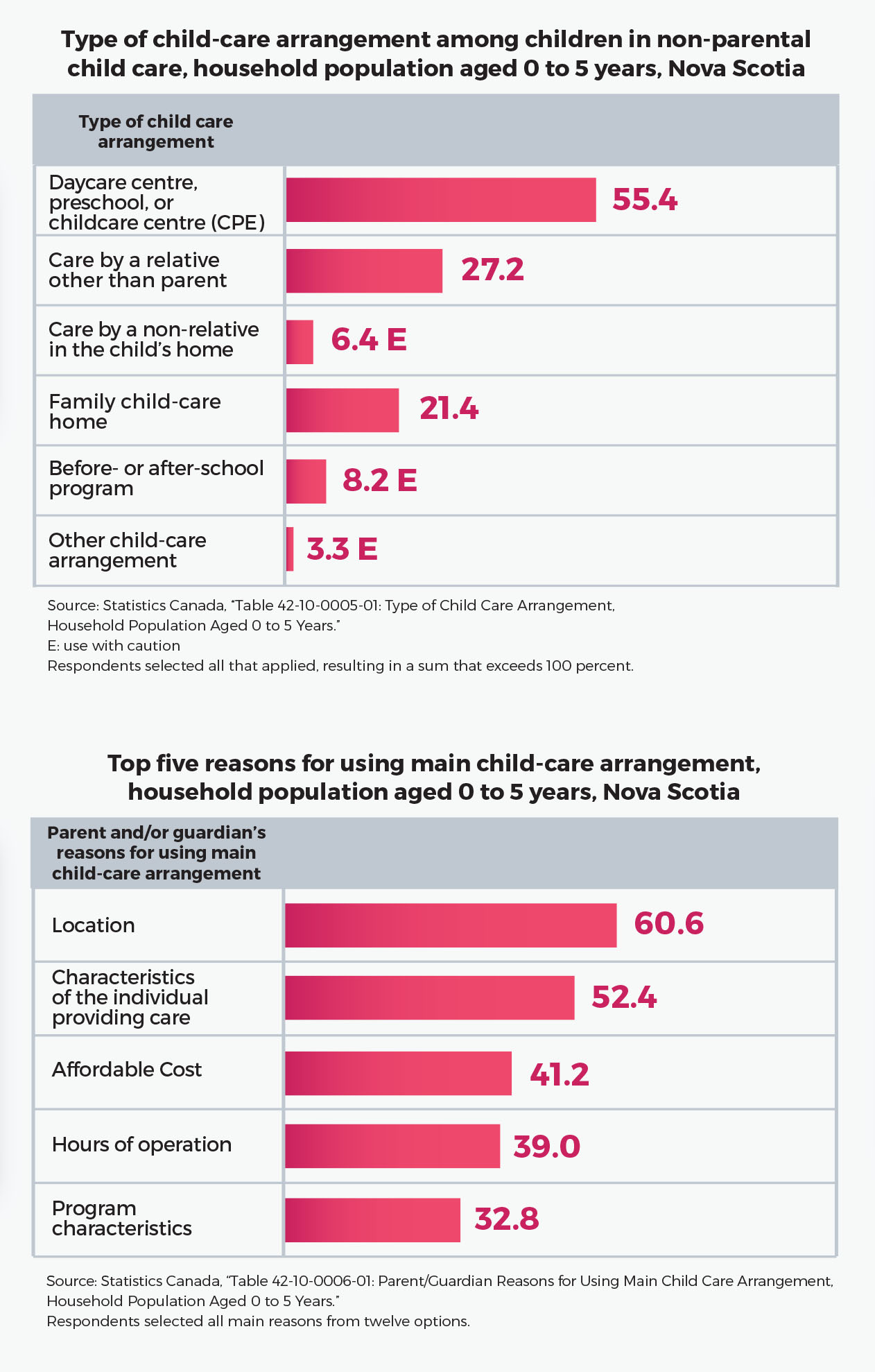Child care is the care of a child, no matter who provides that care. Families have diverse care needs and rely on a variety of forms of care to meet those needs. Public policy best serves families when it offers flexibility and choice. Child-care policies should be equitable for all families, regardless of the type of care they choose. Universal child-care systems fail to recognize the diverse care needs of Nova Scotia parents and their reasons for the type of care they choose.
- Of Nova Scotia children under age six, about 39 percent are in parental care only. 1 1 Source: Statistics Canada, “Early Learning and Child Care for Children aged 0 to 5 years: A Provincial/Territorial Portrait,” https://www150.statcan.gc.ca/n1/pub/11-626-x/11-626-x2019013-eng.htm.
- The majority of Nova Scotia children under age six will receive no benefit from funds designated for centre-based spaces.
- Of Nova Scotia parents who use non-parental child care, about 64 percent report that they have no problem finding the care. 2 2 Source: Statistics Canada, “Early Learning and Child Care for Children aged 0 to 5 years: A Provincial/Territorial Portrait,” https://www150.statcan.gc.ca/n1/pub/11-626-x/11-626-x2019013-eng.htm.
- Of all Nova Scotia children under age six (those in non-parental child care and those who are not), about 34 percent are in centre-based care or preschool. 3 3 Calculations based on Statistics Canada, “Table 42-10-0004-01 & Table 42-10-0005-01: Early Learning and Child Care for Children aged 0 to 5 years: A Provincial/Territorial Portrait,” https://www150.statcan.gc.ca/n1/pub/11-626-x/11-626-x2019013-eng.htm.

